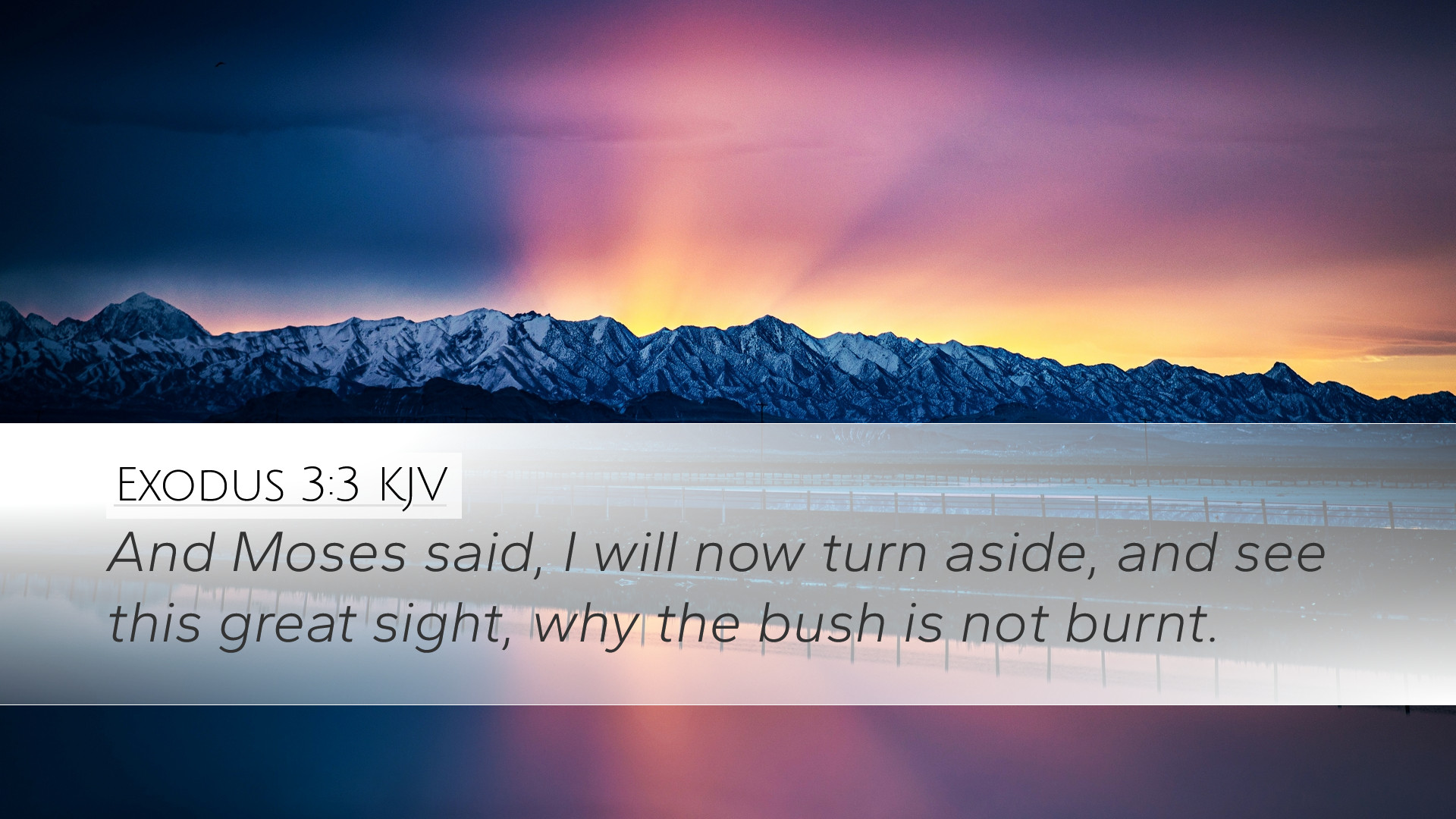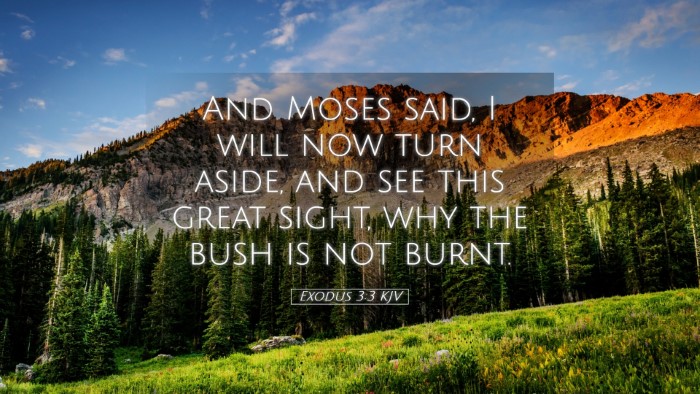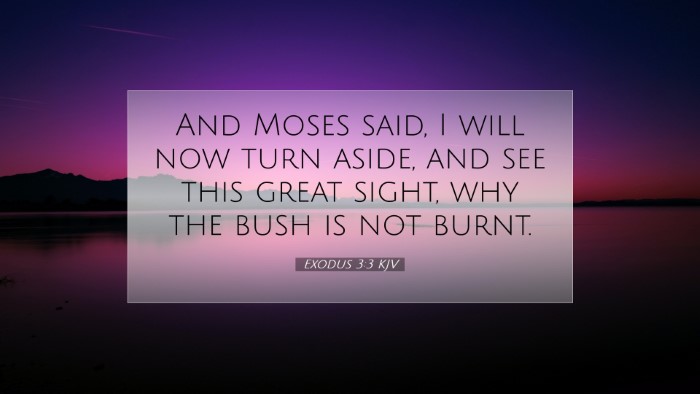Commentary on Exodus 3:3
Exodus 3:3 states, "And Moses said, I will now turn aside, and see this great sight, why the bush is not burnt." This verse captures a moment of divine communication between God and Moses, marking the beginning of Moses' calling and the fulfillment of God’s promise to deliver Israel from Egyptian bondage. The passage holds profound significance for pastors, students, theologians, and Bible scholars. Below is a synthesis of insights from renowned public domain commentaries.
Overview of the Verse
This verse depicts Moses’ reaction to the burning bush, a pivotal moment when he encounters the sacred and the supernatural. It serves as an introduction to Moses’ divine commission as a leader who will stand against the Pharaoh and lead the Israelites to freedom.
Insights from Matthew Henry
According to Matthew Henry, this passage reveals Moses’ curiosity and willingness to observe the extraordinary phenomenon of the burning bush. Henry notes:
- “Moses sees the bush burning with fire, but it is not consumed, which is emblematic of God's presence and power.”
- “His decision to turn aside to explore this sight illustrates an essential attitude of spiritual inquiry and openness to divine revelation.”
- “The bush represents God’s covenantal relationship with His people—it burns but is not consumed, signifying God’s unyielding commitment amidst suffering.”
Henry further emphasizes the importance of responding to God’s initiative. He encourages readers to recognize the significance of divine interruptions in one’s life and the need to be attentive to the voice of God.
Insights from Albert Barnes
Albert Barnes elaborates on the symbolism of the burning bush, outlining the implications of fire as a representation of God's holiness:
- “Fire in Scripture consistently symbolizes God’s purity and presence.”
- “Moses’ inquiry is not merely an act of curiosity but a necessary response to divine call—reflective of his leadership journey.”
- “The fact that the bush is not consumed illustrates God’s ability to sustain His people through trials.”
Barnes also discusses the significance of Moses’ name and background, suggesting that Moses’ upbringing in the Egyptian court equips him with the necessary wisdom and skills for future leadership. This background positions him uniquely to lead the Israelites.
Insights from Adam Clarke
Adam Clarke provides a detailed examination of possible theological implications in the verse:
- “The act of turning aside signifies a willingness to engage in a deeper relationship with God. Moses’ act symbolizes the transition from the mundane to the sacred.”
- “The phrase ‘this great sight’ portrays an acknowledgment of the miraculous nature of God’s interventions in the world.”
- “Moses’ response highlights the importance of personal engagement with God—he must not only witness the divine but respond to it.”
Clarke points out that God often reveals Himself through ordinary experiences that lead to extraordinary encounters. This perspective encourages readers to be vigilant in their spiritual lives and responsive to moments of divine revelation.
Theological Significance
The encounter of Moses at the burning bush carries significant theological implications:
- Divine Initiative: God initiates the encounter, showcasing His sovereignty and desire to engage with humanity.
- Holy Space: The bush becomes a sacred space where God reveals His name and mission, reminding believers of the sanctity of God's presence.
- Response to God's Call: Moses demonstrates the importance of being responsive to God, serving as a model for all who seek to follow God’s will in their lives.
- Theological Reflection: The passage evokes a reflection on God's ways of revealing Himself—often through extraordinary means that invite human inquiry and response.
Practical Applications
For contemporary believers, this passage underlines essential applications:
- Watchfulness: Believers are encouraged to be vigilant in observing God’s work in their lives and surroundings.
- Openness to Divine Encounter: The call to turn aside signifies the need for intentionality in pursuing a relationship with God, embracing both the ordinary and extraordinary.
- Responding to God: As Moses did, individuals should be prepared to engage with God’s calling, recognizing that it often comes when least expected.
- Empowerment for Leadership: God equips those He calls, as seen in Moses’ preparation, suggesting that each believer has the potential for significant impact within their spheres of influence.
Conclusion
Exodus 3:3 encapsulates a moment of divine communication that radically alters the course of history for Israel and highlights critical themes of God's presence, human response, and divine calling. The insights from Matthew Henry, Albert Barnes, and Adam Clarke deepen our understanding of the theological and practical implications for both ancient and contemporary audiences. It invites each reader into a profound engagement with God, encouraging a path of faith that acknowledges and responds to the extraordinary ways in which God works.


